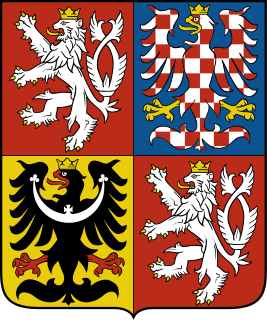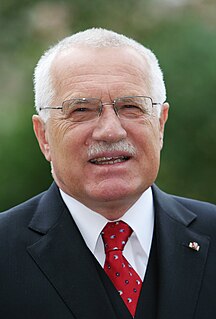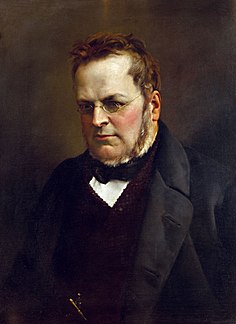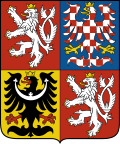
Bulgaria elects on national level a head of state - the president - and a legislature. The president is elected for a five-year term directly by the people. The National Assembly has 240 members, elected for a four-year term by proportional representation in multi-seat constituencies with a 4% threshold. Bulgaria has a multi-party system, in which no one party often has a chance of gaining power alone, and parties must work with each to form governments.

Parliamentary elections were held in Macedonia on 18 October 1998, with a second round on 1 November. VMRO-DPMNE emerged as the largest party, winning 49 of the 120 seats, and later formed a coalition government with Democratic Alternative and the Democratic Party of Albanians.

The Senate of the Parliament of the Czech Republic, usually referred to as Senate, is the upper chamber of the Parliament of the Czech Republic. The seat of the Senate is Wallenstein Palace in Prague.

Parliamentary elections were held in the Czech Republic on 19 and 20 June 1998. The result was a victory for the Czech Social Democratic Party, which won 74 of the 200 seats. Voter turnout was 73.9%.

General elections were held in Belgium on 20 November 1921. The result was a victory for the Catholic Party, which won 70 of the 186 seats in the Chamber of Representatives. Voter turnout was 91.1% in the Chamber election and 91.0% in the Senate election.

Senate elections were held in the Czech Republic on 20 and 21 October 2006, with a second round on 27 and 28 October. The result was a victory for the Civic Democratic Party, which won 41 of the 81 seats. Voter turnout was 38.2% in the first round and just 20.7% in the second.
Constitutional Assembly elections were held in Bulgaria on 10 June 1990, with a second round for eighteen seats on 17 June. They were the first elections held since the fall of Communism the previous winter, and the first free national elections since 1931. The elections were held to elect the 7th Grand National Assembly, tasked with adopting a new (democratic) constitution. The new electoral system was changed from 400 single-member constituencies used during the Communist era to a split system whereby half were elected in single member constituencies and half by proportional representation. The result was a victory for the Bulgarian Socialist Party, the freshly renamed Communist Party, which won 211 of the 400 seats. Voter turnout was 90.3%.

Parliamentary elections were held in Andorra on 9 December 1981, with a second round of voting on 16 December. Local elections were held on the same day. Following the elections, Òscar Ribas Reig became the country's first Prime Minister.

Full general elections were held in Belgium on 14 October 1894, with run-off elections held on 21 October 1894.

Senate elections for a third of chamber were held in the Czech Republic on 13 and 14 November 1998 with a second round on 20 and 21 November.

Senate elections were held in the Czech Republic on 12 November 2000, with a second round on 19 November. The result was a victory for the Civic Democratic Party, which won 22 of the 81 seats. Voter turnout was 33.4% in the first round and 21.5% in the second.

Senate elections were held in the Czech Republic on 25 and 26 October 2002, with a second round on 1 and 2 November. Voter turnout was just 24.1% in the first round and 31.7% in the second.

Senate elections were held in the Czech Republic on 5 and 6 November 2004, with a second round on 12 and 13 November. The result was a victory for the Civic Democratic Party, which won 37 of the 81 seats. Voter turnout was 28.6% in the first round and just 18.4% in the second.

General elections were held in Italy on 27 January 1861, with a second round on 3 February. The newly elected Parliament first convened in Turin on 4 March 1861, where, thirteen days later, it declared the unification of the country as the Kingdom of Italy.

General elections were held in Italy on 29 October 1882, with a second round of voting on 5 November. The "ministerial" left-wing bloc emerged as the largest in Parliament, winning 289 of the 508 seats.

Parliamentary elections were held in Iceland on 24 June 1934. They were the first held after reforms to the electoral system that increased the number of seats in the Lower House from 28 to 33 and ensured that all members of the Althing were elected at the same election. The Independence Party emerged as the largest party in the Lower House, winning 14 of the 33 seats.

General elections were held in Liechtenstein on 11 March 1918, with a second round on 18 March. They were the first elections held in the country contested by political parties, as the Christian-Social People's Party and Progressive Citizens' Party had been founded that year. The Progressive Citizens' Party emerged as the largest in the Landtag, winning seven of the 12 elected seats.

Parliamentary elections were held in the Socialist Republic of Macedonia on 11 November 1990, with a second round on 25 November. They were the first competitive elections in the country's history. VMRO-DPMNE emerged as the largest party, winning 38 of the 120 seats.

Federal elections were held in Switzerland on 27 October 1872. The Radical Left remained the largest group in the National Council.

Parliamentary elections were held in Portugal on 22 November 1822.




















